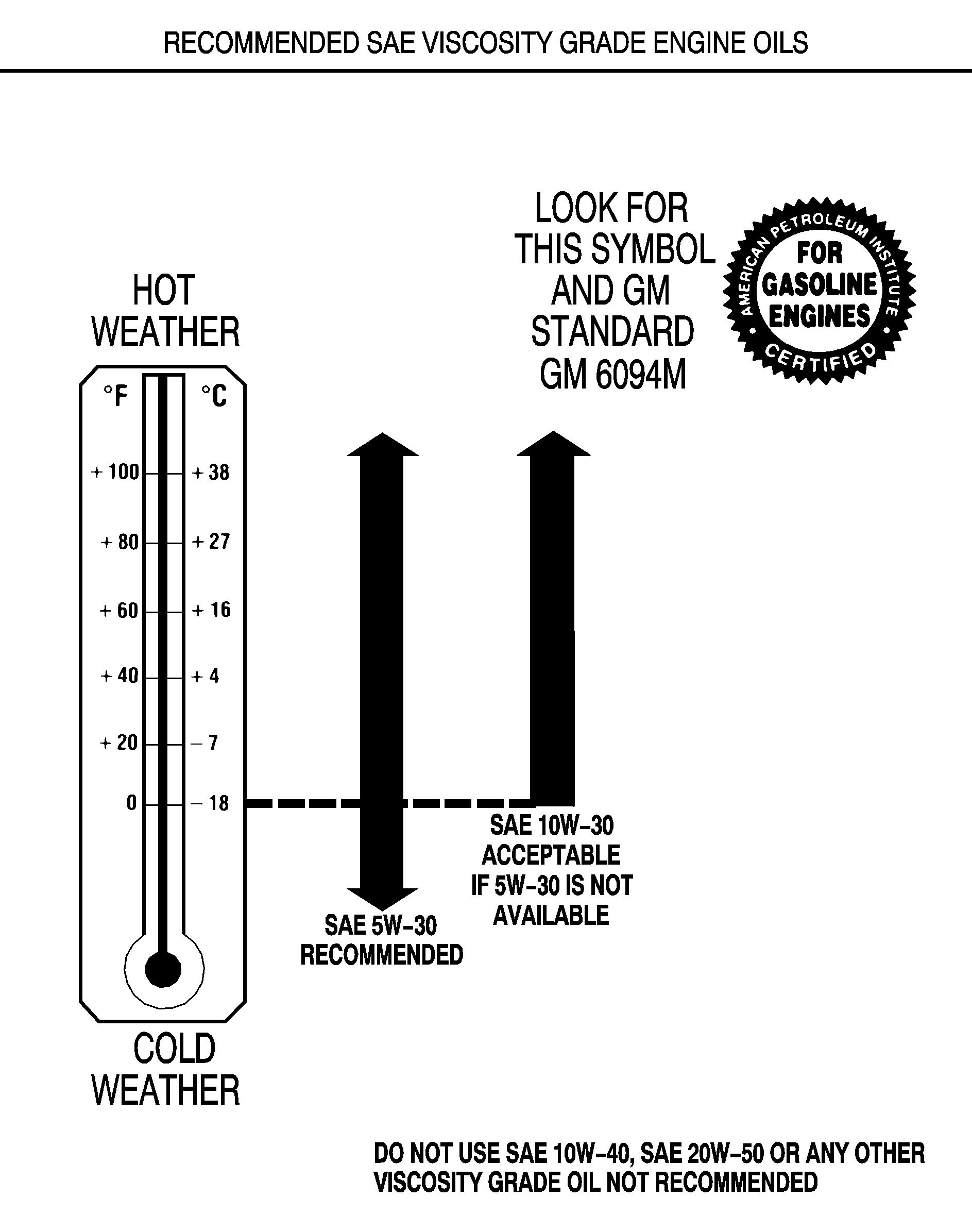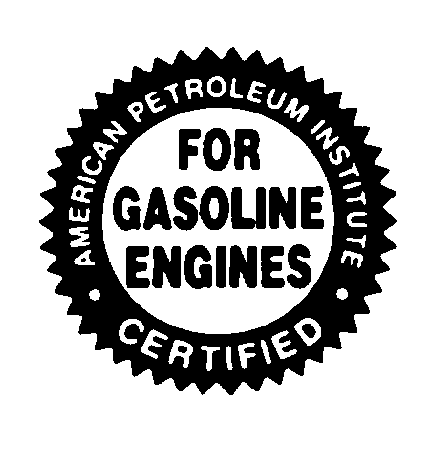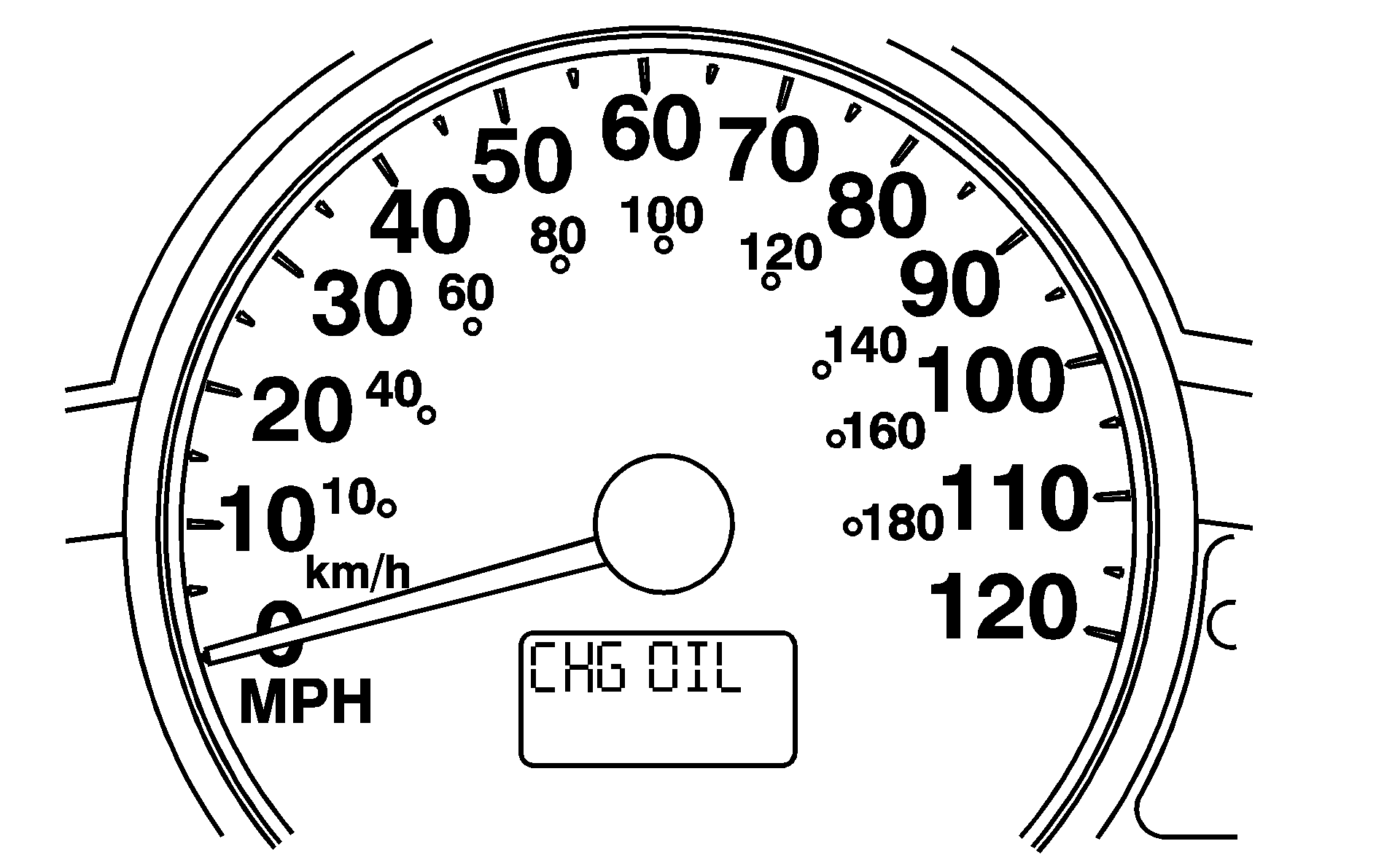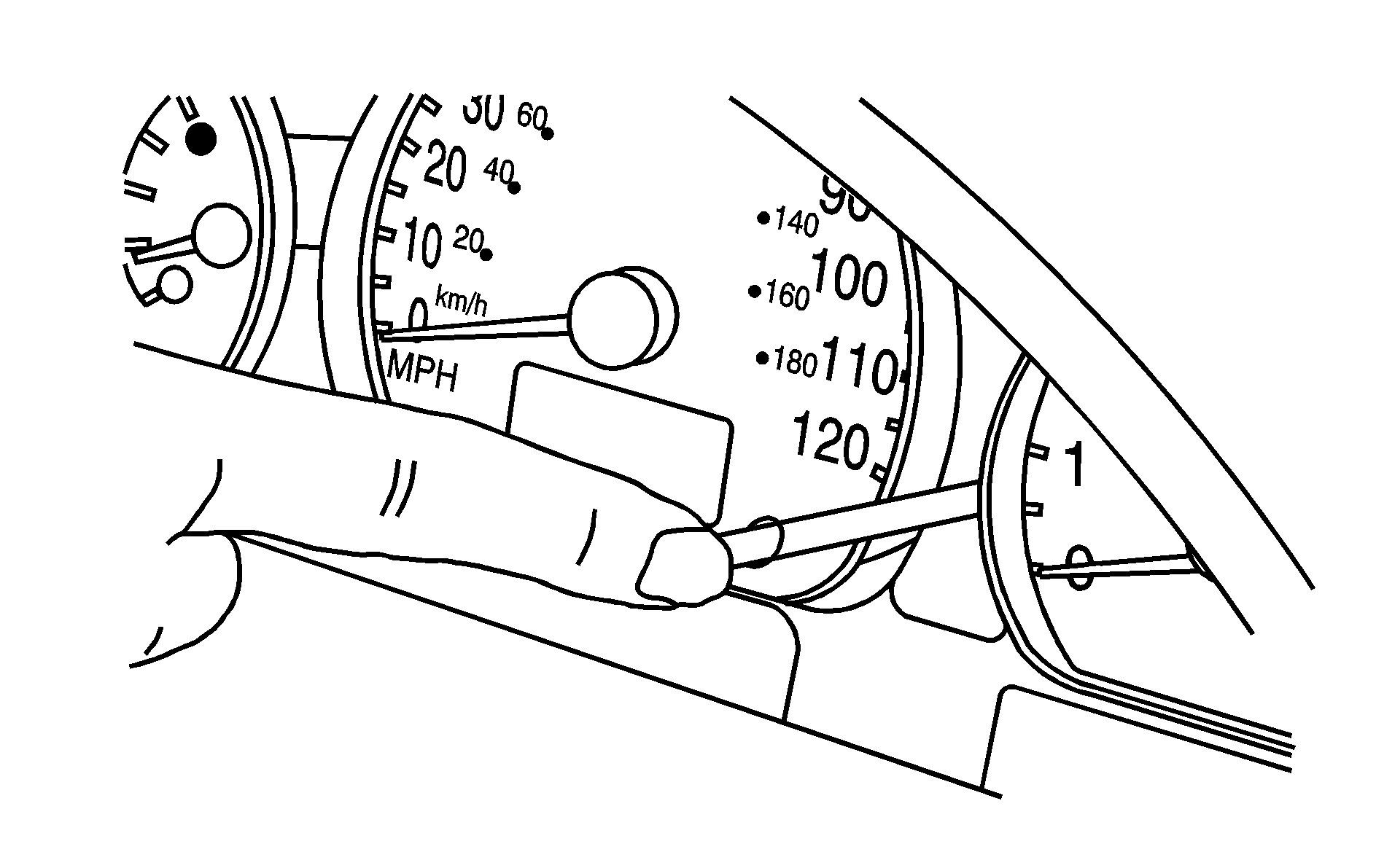Engine Oil
It is a good idea to check your engine oil every time you get fuel. In order to get an accurate reading, the oil must be warm and the vehicle must be on level ground.
The engine oil dipstick handle is a yellow loop. See Engine Compartment Overview for the location of the engine oil dipstick.
Turn off the engine and give the oil several minutes to drain back into the oil pan. If you don't, the oil dipstick might not show the actual level.
Pull out the dipstick and clean it with a paper towel or cloth, then push it back in all the way. Remove it again, keeping the tip down, and check the level.
Engine oil is the principle coolant for the pistons, bearings, crankshaft, camshaft(s), timing chain, etc. It also seals high pressure gases in the combustion chamber, keeps internal engine parts clean and prevents rust and corrosion from forming inside the engine.
The amount of oil you engine consumes depends on how the vehicle is driven, how often the lubricating oil is changed, and the quality and viscosity of the oil. Frequently, your engine will consume more oil when the vehicle is driven at high speeds or during frequent acceleration and deceleration conditions.
Checking Engine Oil
Check your engine oil level after your engine has warmed up. Checking the engine oil when the engine is cold may lead to an incorrect engine oil level reading.
To check you engine oil level:
- Shut off your engine after it has warmed up. Wait five minutes to allow oil to drain back into the oil pan.
- Remove the engine oil dipstick by pulling upward on the yellow handle.
- Wipe any engine oil off of the dipstick using a clean, lint-free cloth. Be careful not to touch the metal part of the dipstick to your skin as it may be hot.
- Reinsert the dipstick into the dipstick tube. Push firmly to be sure that the handle seats all the way into the dipstick tube.

Remove the dipstick once more and read the engine oil level.
A correct engine oil level should read in between the "MAX" and "MIN" marking on the end of the dipstick tube. If engine oil level reads at or below the "MIN" level, add one quart (0.95 L) of engine oil. Allow time for the engine oil to drain into the oil pan and read the oil level again.
When to Add Engine Oil
If the oil is at or below the ADD line, then you will need to add some oil. If the oil is at the ADD line, then add one quart (0.95 L) at the oil filler cap. But, you must use the right kind. This section explains what kind of oil to use. For engine oil crankcase capacity, see Capacities and Specifications .
Notice: Do not add too much oil. If the engine has so much oil that the oil level gets above the upper mark that shows the proper operating range, the engine could be damaged.
Adding Engine Oil
See Engine Compartment Overview for the location of the engine oil fill cap.
Rotate and lift the oil filler cap to remove it. Be sure to add enough of the right kind of oil to put the level in the proper operating range as noted on the dipstick. Push the dipstick back in when your are through.
Reinstall the oil filler cap and rotate it clockwise (to the tight). Be sure it is tight.
What Kind of Engine Oil to Use
Oils recommended for your vehicle can be identified by looking for the "Starburst" symbol. This symbol indicates that the oil has been certified by the American Petroleum Institute (API). Do not use any oil which does not carry this Starburst symbol.

As shown in the viscosity chart, SAE 5W-30 is the only viscosity grade recommended for your vehicle. Your should look for and use only oils which have the API starburst symbol and which are also identified as SAE 5W-30. If you cannot find such SAE 5W-30 oils, you can use a SAE 10W-30 which has the API starburst symbol, if it is going to be 0°F (-18°C) or above.
These numbers on an oil container show its viscosity, or thickness. Do not use other viscosity oils such as SAE 20W-50.

Oils meeting these requirements should also have the starburst symbol on the container. This symbol indicates that the oil has been certified by the American Petroleum Institute (API).
If you are in an area of extreme cold, where the temperature falls below -20°F (-29°C), it is recommended that you use either an SAE 5W-30 synthetic oil or an SAE 0W-30 oil. Both will provide easier cold starting and better protection for your engine at extremely low temperatures.
Engine Oil Additives
Do not add anything to your oil. The recommended oils with the starburst symbol that meet GM Standard GM6094M are all you will need for good performance and engine protection.
When to Change Engine Oil

Your vehicle has a computer system that lets you know when to change the engine oil and filter. This is based on engine revolutions and operating temperature and determines when the "CHG OIL" message displays in the message center. If the "CHG OIL" message stays on in the message center for about 30 seconds after you start the engine, it means there's less than 10 percent of oil life left. You should change the engine oil soon.
The mileage between oil and filter changes will vary depending on how you drive your vehicle - usually between 3,000 miles (5 000 km) and 6,000 miles (10 000 km) since your last oil change. Never drive your vehicle more than 6,000 miles (10 000 km) or 6 months without changing the oil and filter. Always keep a written record of the mileage and date when you changed your oil.
Each time you change your engine oil, the system must be reset. See "Resetting the CHG OIL Message."
Resetting the CHG OIL Message

After changing the engine oil, the oil life monitoring system must be reset. Reset the system by doing the following:
- With the engine running or the ignition key in "RUN" and the engine off, press and release the trip odometer reset stem until the "OIL LIFE" message is displayed in the message center.
- Press and hold the trip odometer stem for a few seconds until a chime sounds five times and "RESET" is displayed in the message center.
- The message center returns to displaying the odometer after the reset is complete.

What to Do with Used Oil
Used engine oil contains certain elements that may be unhealthy for your skin and could even cause cancer. Do not let used oil stay on your skin for very long. Clean your skin and nails with soap and water, or a good hand cleaner. Wash or properly dispose of clothing or rags containing used engine oil. See the manufacturer's warnings about the use and disposal of oil products.
Used oil can be a threat to the environment. If you change your own oil, be sure to drain all the oil from the filter before disposal. Never dispose of oil by putting it in the trash, pouring it on the ground, into sewers, or into streams or bodies of water. Instead, recycle it by taking it to a place that collects used oil. If you have a problem properly disposing of your used oil, ask your retailer, a service station or a local recycling center for help.
